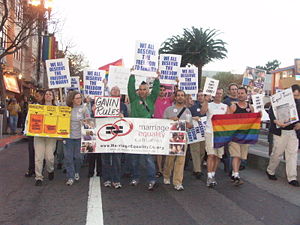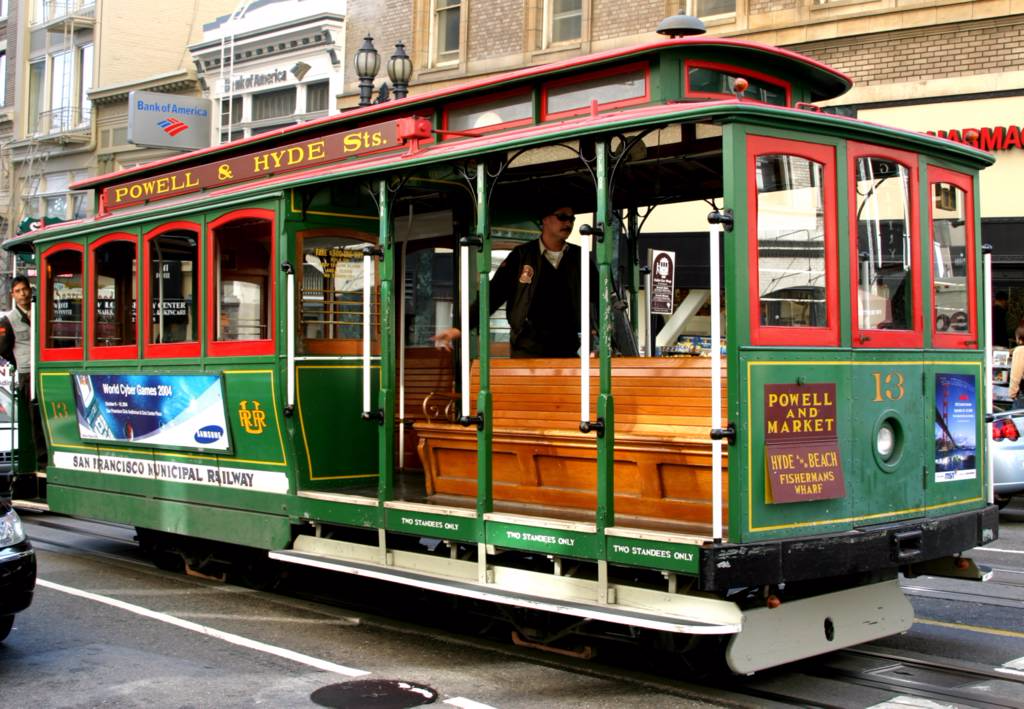San Francisco Bay Guardian - August 4, 1999
THE PRESIDIO MENACE
Thanks to the privatization of the Presidio,
George Lucas is getting a $60 million tax break.
By Savannah Blackwell and Tali Woodward
The way Star Wars mogul George Lucas and the Presidio Trust play it, the $250 million office campus the filmmaker is planning to develop in the Presidio National Park will be a model workplace and center for cutting-edge entertainment technology that comes with a commitment to providing public access to pleasant, well-maintained parkland.
“It’s fun, fizzy and bankable,” the San Francisco Chronicle gushed in a June 16 editorial expressing hopes that the Presidio project would “make San Francisco a serious center in the glitzy entertainment world.”
What’s more, the proposed design suggests the serene aesthetics of a college campus, featuring the latest in environmentally friendly design and construction and a lovely rolling lawn.
For all the rhetoric, you’d think George Lucas was doing San Franciscans a big favor by moving his headquarters from Marin County to the Presidio.
What Lucas and the trust aren’t saying is that the project represents corporate welfare on a grand scale.
A Bay Guardian investigation shows that Lucas will save more than $60 million in property taxes and development fees over the next 12 years – just for moving to one of the most desirable locations in the world.
He also saves himself nearly $200 million by not having to purchase the land outright.
“It’s a huge corporate welfare package,” Joel Ventresca of the Preserve the Presidio Campaign told the Bay Guardian. “Any huge project like this is going to require city services, and [Lucas] is not paying nearly as much as it’s going to cost the city. The taxpayers will be subsidizing his project.”
Under the legislation that established the Presidio National Park, Lucas will pay no local taxes, no property tax, no real estate transfer tax, no school taxes, no affordable-housing fees, and no fees for transit, open space, or public art.
That would seem to contradict the general management plan for the Presidio, which clearly states that providing services to the Presidio “should not result in any net fiscal deficits or benefits to the City.”
Trust general counsel Karen Cook told us that “the trust act clearly exempts [Lucas] from paying state and local property taxes.” As for the city’s impact fees, she said, they’re “not relevant.”
As for the costs of the development to San Francisco, Cook said, “We see this as a win-win for the city. This shouldn’t be looked at as a one-way benefit.”
Since the trust is exempt from city planning laws, San Francisco can’t force Lucas to pay those fees. This is the price San Francisco is paying for encouraging Rep. Nancy Pelosi’s disastrous bill.
Pelosi, fearing the Republican majority in Congress would gut the national park system, agreed to make the park economically self-sustaining.
If she had allowed the land to be sold, at least the city would have gotten tax money from the sale and development. But as it is, we get the worst of both worlds: a privatized, developed business park in the Presidio and no tax money.
Massive Savings
By anchoring his film and sound empire in the Presidio, Lucas stands to avoid paying a host of city developer impact fees and millions of dollars in property taxes.
All the calculations in this story are based on projections Lucas made in his proposal to the Presidio Trust last year. The trust hasn’t accepted that proposal outright – just voted to negotiate with Lucas.
“We are in the very, very early stages of negotiation with Lucas,” Cook told the Bay Guardian. “We cannot and will not make any kind of final agreements until at the least we’ve completed the EIS process” (see “Late Converts,” page 25). She wouldn’t offer any further details on the trust’s negotiating position.
Lucas Digital public relations director Ellen Pasternak said the company had no comment for this story.
Whatever deal is cut, none of the proceeds will go to San Francisco.
Lucas has proposed to lease 15 acres of the Presidio from the trust for 60 years, with options for three 10-year extensions. (The rest of the 23-acre site will be maintained as open space by the trust.) Our analysis covers the first ??? years. Before Lucas and the trust have signed a final agreement, and without reliable estimates of inflation for subsequent decades, it’s impossible to go further. But one thing is almost certain: the giveaways will continue into the
second half of the next century.
Real Estate
If Lucas were purchasing the site rather than leasing it from the trust, he would have to purchase 15 acres to build his office park – 8 acres for the office complex and 7 for the “Great Lawn.” Lucas’s representatives have called the lawn an integral part of the project.
Several commercial real estate brokers have told us that the land would sell for at least $300 per square foot – meaning that the 15 acres would cost a minimum of $196 million.
Property taxes are based on the cost of the land plus the cost of improvements made to the site. Based on the value of the land alone for the first four years, then on the value of the developed land based on average estimated construction costs from Lucas’s own proposal, for the remaining eight years Lucas would pay $45.3 million.
What’s more, he’d be paying a transfer tax – a onetime charge on the sale of property within the city. At .75 percent of the sale price, that would come to $1.47 million.
Total property and transfer tax: $46.8 million.
Impact Fees
The Lucas project will bring an estimated 2,500 new employees into the city. Some will choose to live in the city, potentially displacing existing residents. They’ll use Muni buses and send their kids to district schools.
That’s why the city charges developers a host of onetime fees – to offset the costs of development. But because Lucas’s project is being built on federal land, he won’t have to pay any of those fees – a total savings of some $14.8 million. Here are the fees Lucas doesn’t have to pay:
- Affordable Housing If Lucas were building anywhere else in the city, he’d have to pay $7.06 per gross square foot of office space for affordable housing. That comes to $6.35
million. He could also satisfy this requirement by building 347 units of affordable housing.
- Transit Lucas saves $3.89 million that would go to Muni, calculated at $5 per net square foot of office space. Our figure is based on 365,240 square feet for the first phase
of the project and 413,080 square feet for the second phase.
- Downtown park space The city charges $2 per net square foot for downtown parks. That comes to $1.66 million.
- Public art The developer also avoids a fee for public art – 1 percent of the project’s construction costs. For Lucas’s project, that comes to $1.46 million.
- Child care He also avoids paying a fee for affordable child care that the city bases on $1 per square foot of the project’s gross square footage. That would be $900,000. Or
Lucas could choose to provide on-site care.
- Open space Lucas also avoids paying a fee of 50¢ per square foot to help the city maintain open space. For the 15-acre site, that comes to $326,700.
- School fees Lastly, he avoids paying a fee for the impact of new development on the school system – 25¢ per square foot. That comes to $225,000.
Total development fees: $14.8 million.
None of the money from the Lucas development goes to San Francisco. Lucas will be paying rent to the Presidio Trust, the federal body that oversees the park.
If the trust accepts Lucas’s proposal, the filmmaker won’t pay a dime during the first several years of construction. He has offered to pay for the lease and for services starting in 2004.
The lease is based on gross square footage and starts at $3.72 per square foot in 2004. The amount Lucas proposes to pay changes from year to year; between 2004 and 2011 he’d pay $26.57 million.
The trust has always claimed it would be responsible for the demolition of the existing Letterman complex. Now Lucas proposes to handle the demolition, which the trust says will cost $16 million. According to his proposal, the trust will pay back that $16 million, with interest, by offsetting his ground lease through 2011.
He would also pay a fee for fire and police protection, road maintenance, street lighting, off-site landscape maintenance, storm-water drainage, and emergency medical services. That fee – $2.98 per gross square foot per year – comes to $21.5 million between 2004 and 2011.
So thanks to Nancy Pelosi’s legislation, San Francisco is losing $61.6 million – money that could be used to fix Muni, to build affordable housing, to improve public spaces in the city.
Instead, city services will bear the burden of this huge project – without recouping any money from its billionaire developer.
“These folks who are certainly capable of paying these development fees aren’t – and all city services remain grossly underfunded,” Mark Norton of San Franciscans for Tax Justice told us. “All this just so we can watch multimillion-dollar movies? It’d be better to subsidize wages or housing. Maybe the CEOs could’ve pitched in a bit – rather than the city.”
Here’s how much Lucas will save for the first 12 years of the Presidio project:
Property taxes $45.3 million
Property transfer tax $1.47 million
Total $46.8 million
Affordable housing $6.35 million
Transit $3.89 million
Downtown park space $1.66 million
Public art $1.46 million
Child care $900,000.
Open space $326,700.
School fees $225,000.
Total $14.8 million
Grand total $61.6 million
Bob Porterfield contributed to this story.
San Francisco Bay Guardian - August 4, 1999
LATE CONVERTS
Environmental support for the Presidio Trust is starting to fall apart – finally.
By Savannah Blackwell
The major local and national environmental groups that helped privatize the Presidio are now, finally, lining up in opposition to the commercial development of the national park.
The Sierra Club, the Natural Resources Defense Council, the National Parks and Conservation Association, and several other leading groups are blasting the plan to allow George Lucas to build a massive office complex on the site of the old Letterman Hospital.
The National Park Service, another key supporter of the privatization legislation, also has serious problems with the Lucas plan, the Bay Guardian has learned. The NPS maintains that the Lucas proposal does not fit with the original concept for the park. And the city of San Francisco is questioning the need for the project as it is currently planned.
Activists who have opposed the Presidio privatization form the beginning welcomed the big environmental groups to the fray but pointed out the bitter irony of the situation: the park might never have been turned over to private hands – and this Lucas project might never have gotten into the pipeline – if those same groups hadn’t bought into the plan five years ago.
“That mainstream environmental organizations are now criticizing the process is good news. Hopefully they will push to change the fundamentally flawed Presidio Trust Act,” Joel Ventresca, chair of the Preserve the Presidio Campaign, told the Bay Guardian.
Joan Girardot, president of the Coalition for San Francisco Neighborhoods, added, “I’d just like to know where they were when the legislation was making its way through Congress.”
For their part, representatives from those mainstream organizations told the Bay Guardian that they had believed the general management plan – which articulates a bucolic ideal for the former military base – would be followed by the trust.
“We came here, attracted by the [plan],” Ellen Friedman, vice president of the Tides Foundation – a group that supported the trust legislation process and is located at the Presidio – told the Bay Guardian.
“I wasn’t active on the issue at that time, so I don’t know what was going on in their heads,” John Rizzo, who is on the executive committee of the Bay chapter of the Sierra Club, told us. “Some people felt they were assured.”
Michael Alexander, who has been the Sierra Club’s Presidio point person for the past five years and who was a leader in the privatization movement, said he didn’t know what the Sierra Club’s position on the Letterman project was, and hung up on us before we could ask any more questions.
The big lie
The Presidio Trust Act, by Rep. Nance Pelosi (D–San Francisco), desperately needed the support of environmentalists to win congressional approval.
The bill did something that had historically been considered anathema to environmental leaders; it turned control of a national park over to a private, unelected trust controlled by big businesses and real estate developers.
But Pelosi promised that this bitter pill would be coated in green: the park’s general management plan, she insisted, would prevent the place from becoming an intensively developed office complex (see “Presidio Inc.,” 1/12/94).
The Tides Foundation and the Energy Foundation, which were part of the first nonmilitary project at the Presidio, the Thoreau Center, were also key supporters of Pelosi’s plan (see “Anatomy of a Sellout,” 10/8/97). They all had sweetheart leases at the park – and neither they nor the groups they funded would utter a peep against the privatization of the park.
But now even they are taking issue with the direction the trust is taking. Friedman of Tides told us that the foundation’s comments would be along the same lines as those of other environmental groups. And while the Energy Foundation isn’t taking a position on the project, executive director Hal Harvey told us he personally opposes it. “I think the decision to develop that whole corner of the park is a big mistake,” he said.
The Presidio Alliance, which represents the nonprofits located at the Presidio, is not taking an official position on the project. But it did send out a copy of the National Parks and Conservation Association’s stated objections to the proposal.
At the time Pelosi’s bill was going through Congress, critics pointed out that the bill gave the trust the ability to ignore the general management plan – and that, in fact, the bill turned the plan on its head by requiring the trust to make financial return the top priority for the use of park land.
And that is exactly what has happened.
Now the park service and environmental groups are claiming that the environmental impact statement produced by the trust for the Letterman Hospital complex redevelopment project violates the National Environmental Protection Act and completely departs from the general management plan. The city and some of the groups are even asking to see the trust records that justify its need for $36 million to operate and, specifically, the financial need for the Lucas project.
Indeed, as of July 29 the public file containing comments on the EIS included not one vote of support from a local environmental organization – despite the trust’s efforts to play off the Lucas proposal as one that enjoys widespread environmental support and Lucas representatives’ assurances that the complex will feature the latest in environmentally friendly construction and design. The comment period closed at the end of the work day Aug. 2.
Representatives for the trust told the Bay Guardian that they will be responding to all comments on the EIS.
“All I can say is that we respect their opinion and that we will be addressing all the topics and concerns,” Karen Cook, the trust’s general counsel, told the Bay Guardian.
‘Clear inconsistencies’
The first and foremost friend of the trust legislation was the National Park Service itself. During the discussions over the future of the former army base, NPS officials were key cheerleaders for Pelosi’s plan.
But the park service is changing its tune. A letter dated Feb. 16, 1999, from B.J. Griffin, NPS general manager of the Presidio, to Jim Meadows, the trust’s executive director, indicates a high level of dissatisfaction with the EIS. The letter was obtained by the Bay Guardian through a public records request directed at the NPS.
“Our review of the Trust’s proposal for the Letterman Complex reveals clear inconsistencies with the vision of the GMPA for that planning area,” the letter states. “The overall emphasis on new construction in the Letterman Complex is on a scale not anticipated by the GMPA.”
To drive home what she means, Griffin points out that the GMPA stated that the Presidio “now stands ready to house a network of national and international organizations devoted to improving human and natural environments and addressing our common future….The Letterman Complex will continue to be used to nurture ideas and support research and actions to improve human and environmental health.”
The clear implication: the NPS wants the park to house nonprofits and community groups – not George Lucas.
Unfortunately, the Pelosi bill requires the Presidio Trust to lease the land at the highest possible rents to make the most possible money – which will, inevitably, drive the small nonprofit groups out.
The NPS letter goes on to take up a list of issues – from water quality and drainage issues to impact on traffic and surrounding neighborhoods – on which the EIS is deficient.
Violation of law
A May 24 letter from the Golden Gate chapter of the National Audubon Society, the National Parks and Conservation Association, the National Trust for Historic Preservation, the Natural Resources Defense Council (NRDC), the San Francisco League of Conservation Voters, the Wilderness Society, and the Yerba Buena chapter of the California Native Plant Society echoes the NPS’s position that the Lucas project departs radically from the original vision of the general management plan. And it takes on the Lucas plan from another angle. The groups say the Presidio Trust is choosing a developer too quickly, without adequate public input, and that doing so violates federal law.
“As currently structured, the process [by which the Presidio Trust is selecting the developer for the Letterman complex] ignores clear statutory mandates, including the mandate for meaningful involvement by the public,” the letter states. “If the current process is not revised, we fear that it will undermine the Presidio Trust’s credibility. Not only will the publicly supported vision for the Presidio fail, but so will the Trust’s mandate for financial self-sufficiency. We do not make this statement lightly….The trust has embarked on a process that does not comply with applicable law.”
Specifically the letter charges that the trust is already well on the way to finalizing a decision on a developer (Lucas) – but that the EIS has not been completed because the public comment period on the document is still open. That, the groups say, is a violation of the National Environmental Policy Act.
The Sierra Club has also joined forces with the groups, stating that its position, too, is that the EIS is inadequate.
“There just isn’t enough information in there – including the financial data,” Rizzo told the Bay Guardian. “And in a lot of respects, the Lucas project is the worse of the alternatives. It brings the most employees to the Presidio, provides the least housing, and has the fewest public amenities.”
The National Parks and Conservation Association has issued a call to arms on its Web site: “The Trust is now in the process of making its first major decision. Unfortunately, the process they are following is terribly flawed. You can help prevent this result.” Indeed, like the Sierra Club, the group maintains that the Lucas proposal was the worst of the lot and that it signals the industrialization of the Presidio.
At a June 29 hearing on the Letterman project called by San Francisco Board of Supervisors president Tom Ammiano at the request of Coalition for San Francisco Neighborhoods’ Girardot, NRDC attorney Johanna Wald testified, “It is quite remarkable that the EIS contains no assessments of development on the Presidio or the Presidio’s natural resources. We have documented a failure of critical analysis.”
At the same hearing, potentially impacted city agencies were asked by Ammiano, Sups. Sue Bierman and Leland Yee to assess the EIS’s effect on the city and provide comments to the EIS. This was in part the upshot of a meeting neighborhood groups – concerned about Lucas’s bring more traffic and other problems to their communities – had had with Mayor Willie Brown (see “The Big Presidio Lie,” 6/2/99).
In an Aug. 2 letter to the trust, Hillary Gittelman, environmental review officer for the city’s planning department, points out concerns raised by neighbors such as whether the city’s sewage lines can handle the Lucas project. (In rainy weather the Southeast treatment plant in Bayview backs up and sewage pours onto the streets.) She takes issue with the trust’s handling of transportation matters housing issues, and water supply and asks to see records documenting why the project is financially needed.
“It is difficult to determine from the Draft EIS, precisely why development of the Letterman Complex at the intensity envisioned is necessary to achieve this goal – preservation of a national park,” Gittelman wrote. “For the benefit of all, please summarize budgetary needs of the Trust, including the cost of anticipated capital improvements, and the revenues associated with leasing of existing facilities. Demonstrate how the proposed development is ‘needed to achieve the Presidio Trust Act’s mandate that the Presidio Trust be financially self-sufficient by 2013’ (Draft EIS, p.3).”
Among the host of options the deep-pocketed environmental organizations have to enforce their views is a lawsuit, or lobbying to change the legislation.
“There could be a lawsuit over the EIS, depending on how the trust responds. Right now we’ve made our comments, and we’re going to give them a chance to respond,” Rizzo told the Bay Guardian.“Changing the legislation would be a longer-term issue that we would have to decide. I don’t know of any active campaign on that right now, but it is an option – even if we get what we want.”
Tali Woodward contributed to this story.
P.S. The San Francisco Examiner, the San Francisco Chronicle, KRON-TV, and KQED, which have all either actively supported and pushed the privatization of the Presidio or ignored the privatization story, have all received grants from Pew Center for Civic Journalism, and offshoot of the Pew Foundation. Pew, which has supported privatization and opposed environmental efforts all over the country, also put some $200,000 into the Tides Foundation (see “Pulling Strings,” 10/8/97). Now that even Tides is opposing the Lucas development at the Presidio, will Pew? Pew spokesperson Barbara Beck said the organization lets is grant recipients make their own decisions on those issues and “would nave no opinion on the development.” Meanwhile, we called the Pew Center to ask if it could point to a single grant to a newspaper or broadcast outlet that has expressed any criticism of the Presidio or the privatization of natural resources. By press time, we hadn’t heard back.







